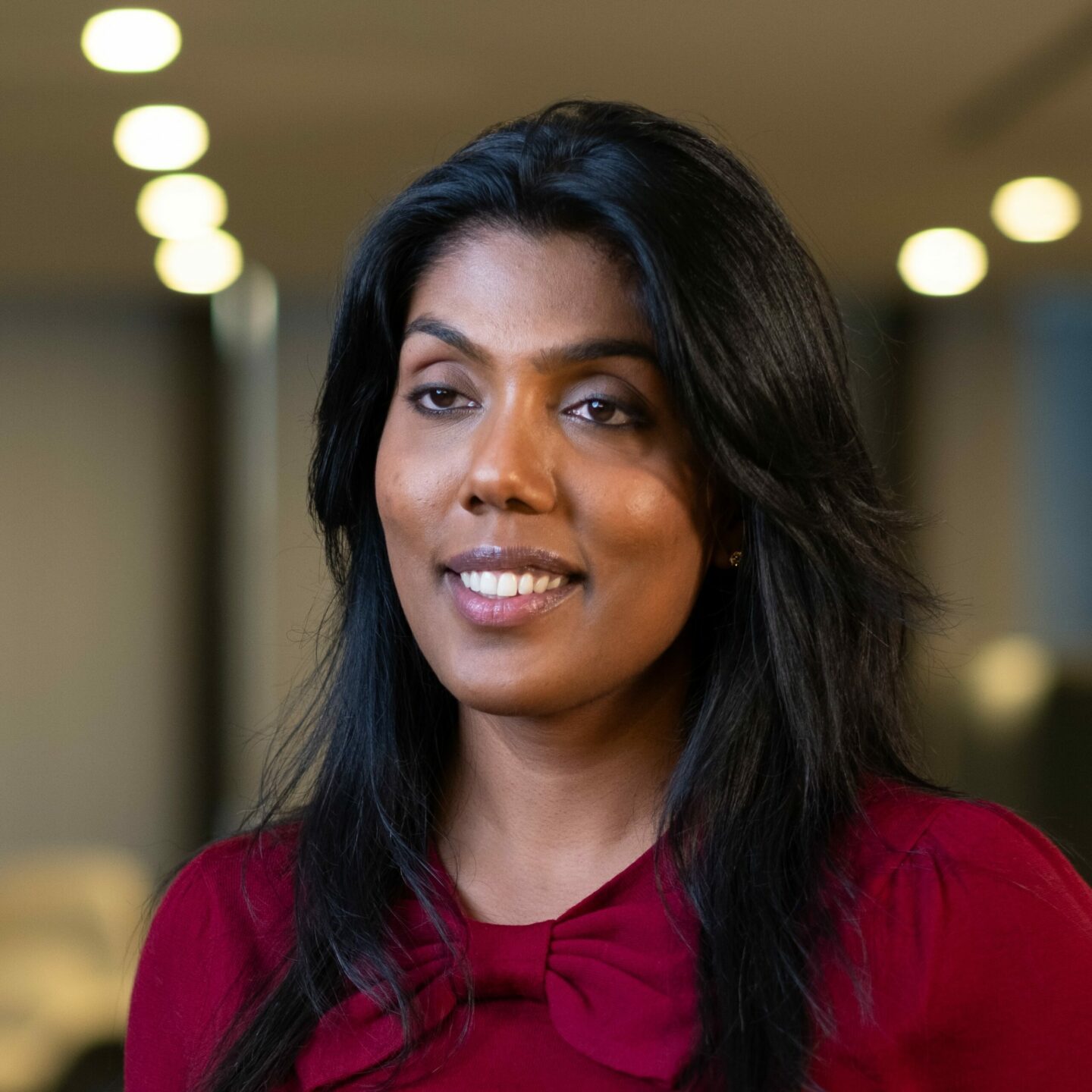
In the latest in our series, Portfolio Adviser hears from Aviva Investors head of UK wholesale Apiramy Jeyarajah (pictured right)
Which asset classes and strategies are you seeing intermediary clients focusing on over the second half of the year and into 2022?
The wholesale industry is in a state of flux at the moment, as regulation and changing client demands have increased scrutiny of advisers – not just around their product offering but their culture and values too. The rise of environmental, social and governance (ESG) and impact investing, twinned with the increasing awareness of diversity issues among investors, is certainly asking more from those in the industry than ever before.
Against this backdrop, we are currently seeing a lot of demand for multi-asset ESG-related products, particularly those aligned with thematic impact areas on the equity side. Thanks to the likes of Greta Thunberg and David Attenborough, social justice and natural transition are themes that are now firmly in the mainstream and we are certainly seeing that reflected through client demand.
Should end-investors – and, by association, asset managers – be thinking beyond equity and bond investments? Towards what sort of areas?
Those who run money should be thinking about their risk/reward profile and how they can diversify across various asset classes beyond equities and bonds. One example of a sometimes-neglected asset class here would be convertibles, which offer investors the potential for uncorrelated returns and/ or portfolio diversification and low volatility through either a long-only or absolute return context.
“Investors should not forget the influence they have to drive change in dynamic global events”
Given client and regulatory pressure on fees and charges, how is your business delivering value for money to intermediaries and end-clients?
Value assessment is about whether the money spent correlates with the objectives. Naturally, people want to hear that low-cost is better – the reality is, it is not. As the saying goes, there is no such thing as a free lunch and it is important to be cognisant of exactly what you are getting for your money.
As the industry evolves and advances, asset managers are under increasing pressure to offer a value proposition that is reflective of that. A good example here is ESG – put simply, a robust ESG proposition can create value for the client.
ESG is the guiding force behind economies transitioning to a sustainable future and can improve return/risk profile of funds they are invested in. When investors choose managers, they should review the metrics they use to assess funds incorporating the value-add ESG integration, micro stewardship and macro stewardship bring. They should also not forget the influence they have as investors to drive change in dynamic global events. These can include the shift to sustainable consumption, addressing climate change and the movement for equality.
“Asset managers must future-proof their businesses and prepare for a new generation of investors”
How much of your distribution is currently oriented towards ESG issues and sustainable investing? How do you see this evolving over the next 18 months?
It is part of our fiduciary responsibility to invest responsibly on behalf of our clients. ESG is already embedded into all of our client due-diligence processes and this will continue as a focus over the next 18 months and beyond. We are looking to drive the best customer outcomes by actively engaging with our investee companies on our expected investment outcomes and driving our agenda toward a sustainable world, and this will remain at the heart of our business.
With eight in 10 millennials saying ESG considerations are the most important factors when weighing up an investment, asset managers must future-proof their businesses and prepare for a new generation of investors. As millennials begin to enter their peak earning years, they are starting to wield significant financial clout.
According to consulting firm Deloitte, US millennials are in the process of inheriting $24 trillion (£17.4 trillion) from their elders, and a similar wealth transfer is underway in the UK. Asset managers hoping to win a slice of this potential business will require expertise in ESG, including a demonstrable track record on engagement and impact.
“Organisations are now working with the ‘new normal’ to maximise productivity and workplace happiness”
In what ways do you think the experience of the last 18 months has permanently affected or changed the asset management sector?
The past 18 months has proved virtual working can be effective and, in turn, this has opened up the possibility of tapping into a much broader and diverse talent pool. A great deal of work still needs to be done before the industry is truly representative of wider society, but the pandemic has helped to break the taboo around remote working. This has opened up job opportunities that were previously closed off for people who perhaps could not afford to relocate, or those needing flexible hours to accommodate childcare.
At the start of the pandemic, businesses were focused on getting their processes running internally, but now organisations are looking at their growth agenda, working with the ‘new normal’ to maximise productivity and workplace happiness.
How do you plan to balance face-to-face and virtual distribution? Have you identified aspects where one is especially better (or worse) than the other?
Virtual distribution makes it easier to cover different geographies while things such as due-diligence processes will probably continue to be virtual. As we transition out of a lockdown environment, however, business development can happen in a more traditional sense. Our clients have been increasingly keen to meet in person, so I have been out seeing clients face-to-face several times a week for the past couple of months, which has been great.
Internally, at Aviva Investors, we are working with a 2/2/1 policy, two days in the office, two days at home and one day to choose where you would like to be. Collaborative work, sales pitches and new business meetings often need to be face-to-face, and are suited to the office, whereas other tasks might be better to be done at home.
Did you manage a staycation or to get abroad this summer?
I have not gone abroad this summer. Instead, I have had a few staycations and taken the opportunity to focus on my hobbies in the UK. I love being out in nature and I have done a lot of sailing and hiking during the past 18 months. We managed to get a group together and competed in my first competitive sailing race at Cowes Week in August, which was fabulous fun.
What aspects of your own lockdown routine do you expect to continue with as people migrate back to office-working?
Personally, I’m enjoying getting back into the office a few days a week, but I encourage my team to use the days when they are at home to do things like taking the dog out for a walk or going to the gym – things they could not necessarily do while in the office.
More generally, what are you expecting from ‘the new normal’?
The pandemic has shown us that the traditional past ways of working are not fit for the future and that one size really does not fit us all. I am expecting a more adaptable workforce, where management are more considerate and flexible when it comes to their employees’ needs, and think carefully about how to get the best out of their teams to ensure each individual can feel like they belong and thrive at work.









